Teach about everyday uses of magnets with this printable mini-book perfect for Year 4 science lessons.
Explore Everyday Uses of Magnets
Although we might not always see them, magnets are used in many different ways to make our everyday lives easier. From MRI machines to microwaves, from radios to refrigerators, these handy magnetic objects play a fundamental role!
This mini-book about the everyday uses of magnets has been designed by our experienced teacher team to help your students learn some of the ways that magnets are used in various areas of society. The pages of this force of uses of magnets mini-book include:
- Title page
- KWL activity
- What are magnets?
- Why are magnets useful?
- Magnets in hospitals
- Magnets at home
- Industrial magnets
The last page of the mini-book contains a “Show Your Smarts” page containing five true or false questions for the students to answer. Completing this activity will help teachers informally assess how well students have grasped and retained the concepts presented in the mini-book.
This resource downloads as a black-and-white PDF or an editable Google Slides document.
Students can keep their mini-book on hand as a reference as they work through their unit on magnets and magnetism!
Multiple Uses for This Uses of Magnets Mini-Book
There are multiple options when it comes to implementing this uses of magnets in your science lessons. If you’re in need of some inspiration, check out these suggestions:
- Group Read-Aloud – Gather your students around and read this mini-book together. Encourage them to share additional examples of how they have seen magnets used in their everyday lives.
- Magnets Scavenger Hunt – Organise a classroom scavenger hunt where students must locate magnets being used in larger objects. This makes learning about magnets a more memorable experience and has the added benefit of getting your students up and moving!
- Share-at-Home Resource – This uses of magnets mini-book makes a great resource for your students to take home and share with their parents or carers so they can be informed about what their child is learning in the classroom.
Download and Create This Uses of Magnets Book
Use the dropdown menu on the Download button above to access either the quick-print PDF or the editable Google Slides version of this resource. (Note: You will be prompted to make a copy of the Google Slides template before accessing it.)
This resource contains four A4-sized pages. Each page includes two mini-book pages (8 pages in total). To assemble the mini-book, follow these simple steps.
- Print out the resource. Create copies as required.
- Cut each page along the dotted line.
- Compile the pages in order.
- Staple the pages along the left-side margin to create a booklet.
- Distribute to the students.
Your students will love adding their own colour and flair to this mini-book while learning about the everyday uses of magnets.
This resource was created by Kaitlyn Blevins, a Teach Starter collaborator.
More Activities on Magnets and Magnetism
Looking for more time-saving resources to use when exploring magnets and magnetism with your students? Click below for some great teacher-created, curriculum-aligned options!
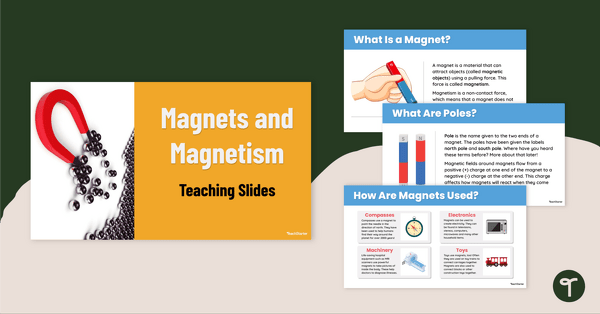
teaching resource
Magnets and Magnetism Teaching Slides
Teach your students how magnets and magnetism work with this comprehensive and age-appropriate teaching presentation for primary school science lessons.
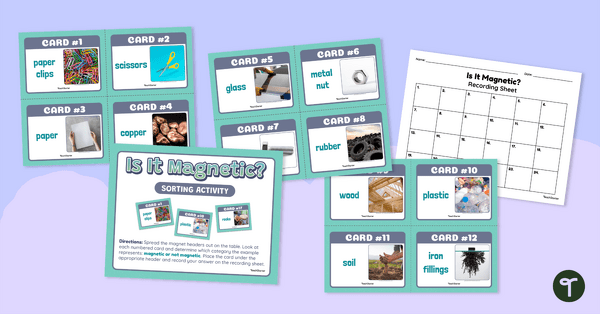
teaching resource
Is It Magnetic? Sorting Activity
Use this sorting activity when classifying objects as magnetic or not magnetic.
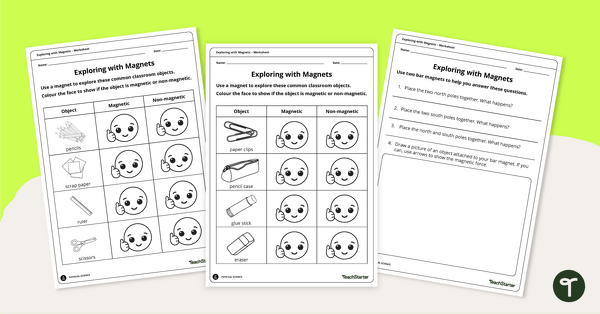
teaching resource
Exploring Magnets Worksheets
Download this magnetic or non-magnetic worksheet to use when exploring magnetism in your primary school science lessons.
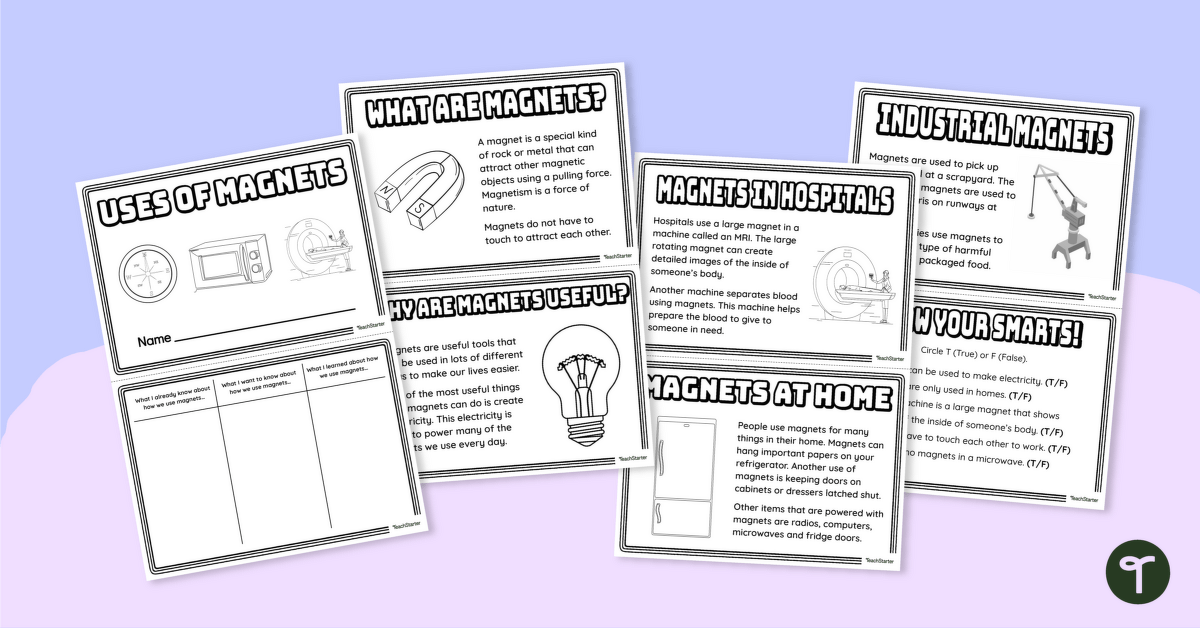

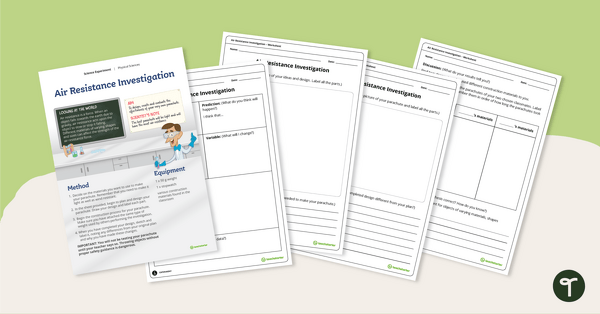
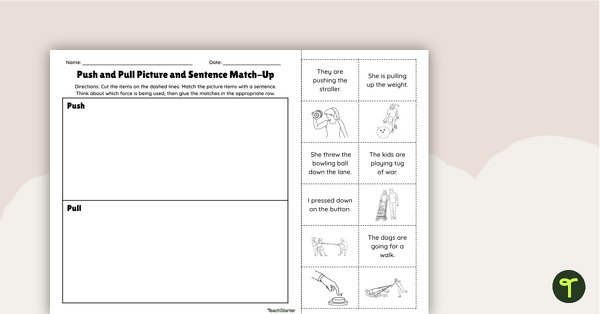
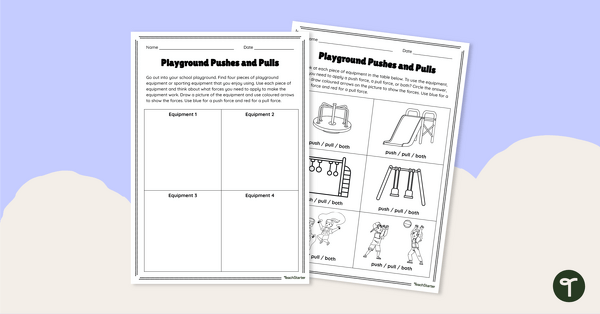
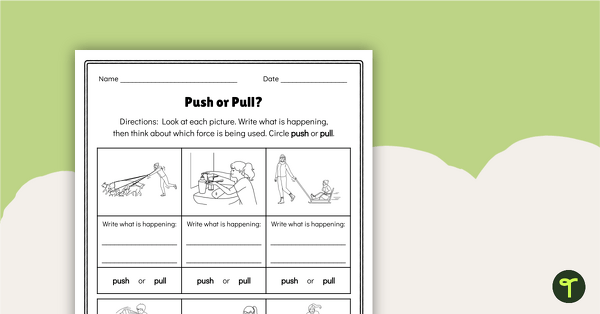
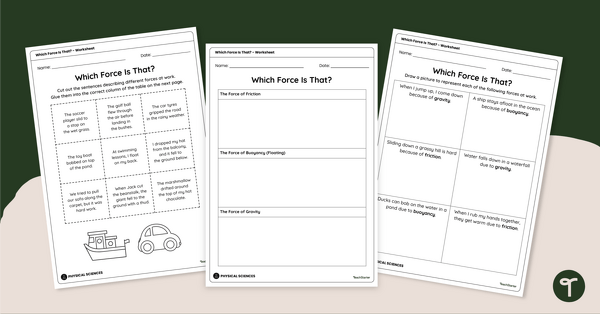
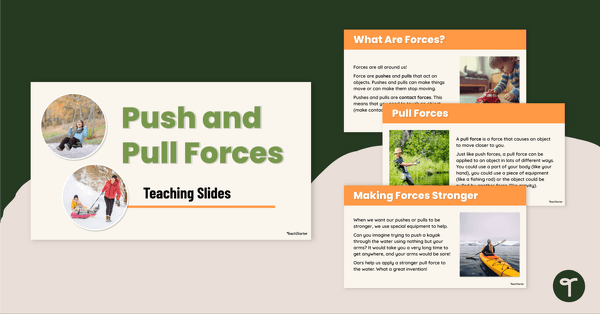
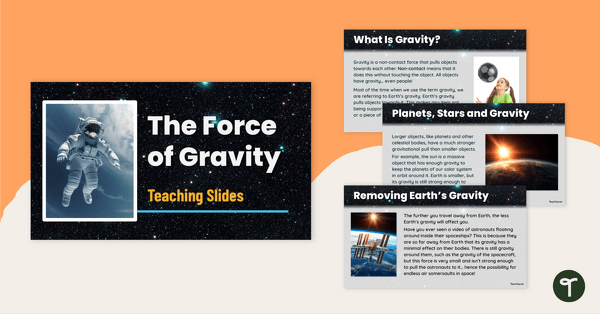
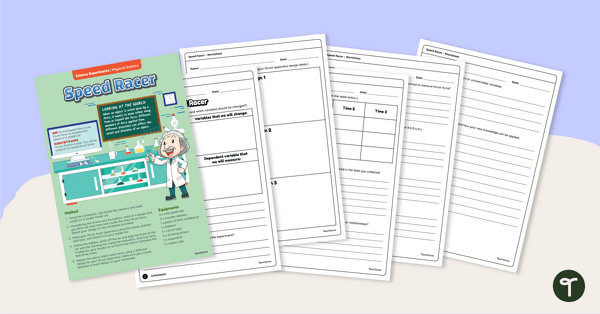
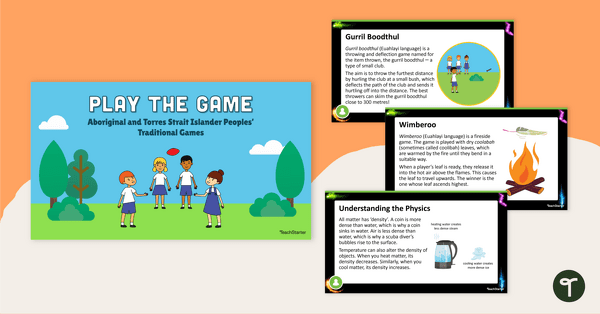
0 Comments
Write a review to help other teachers and parents like yourself. If you'd like to request a change to this resource, or report an error, select the corresponding tab above.